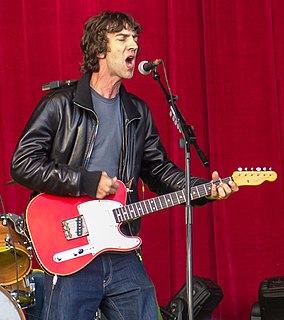Цитата Анатолия Рапопорта
Переход от понятия информации в техническом (инженерно-коммуникативном) смысле к семантическому (теория значения) смыслу был действительно труден, если не невозможен.
Связанные цитаты
Вместо того, чтобы думать о звуке и смысле в моих эссе как о двух противоположных принципах, двух перпендикулярных траекториях, как они часто рассматриваются в разговорах о переводе, или даже как о двух разрозненных явлениях, которые можно объединить для более или менее успешного взаимодействия, я думаю звука как смысла. Звук имеет свое собственное значение, и это одно из многих несемантических измерений значения в языке. Я хочу подчеркнуть формальную динамику между языком-как-информацией и языком-как-материалом искусства.
Как только вы смотрите на мир через идеологию, с вами покончено. Никакая реальность не соответствует идеологии. Жизнь выше этого. Вот почему люди всегда ищут смысл жизни. Но жизнь не имеет смысла; у него не может быть смысла, потому что смысл — это формула; смысл - это то, что имеет смысл для ума. Каждый раз, когда вы находите смысл в реальности, вы сталкиваетесь с чем-то, что разрушает смысл, который вы сделали. Смысл обнаруживается только тогда, когда вы выходите за пределы смысла.
Вырванная из своего более ограничительного смысла, мастурбация стала выражением всего, что из-за отсутствия человеческого контакта оказалось лишенным смысла. У нас проблемы с общением, мы страдаем от эгоцентризма и нарциссизма, расстроены избытком информации и потерей окружения; мы стагнируем, несмотря на рост ВНП.
Теория хаоса, более позднее изобретение, является столь же благодатной почвой для тех, кто склонен злоупотреблять чувством собственного достоинства. К сожалению, это название таково, потому что «хаос» подразумевает случайность. Хаос в техническом смысле вовсе не случаен. Она полностью детерминирована, но очень сильно зависит, странным образом трудно предсказуемым образом, от крошечных различий в начальных условиях.





































